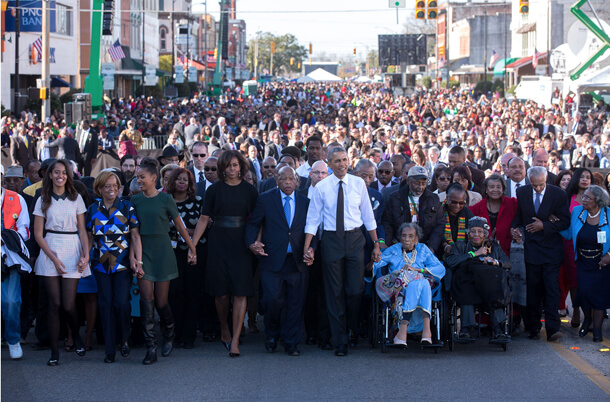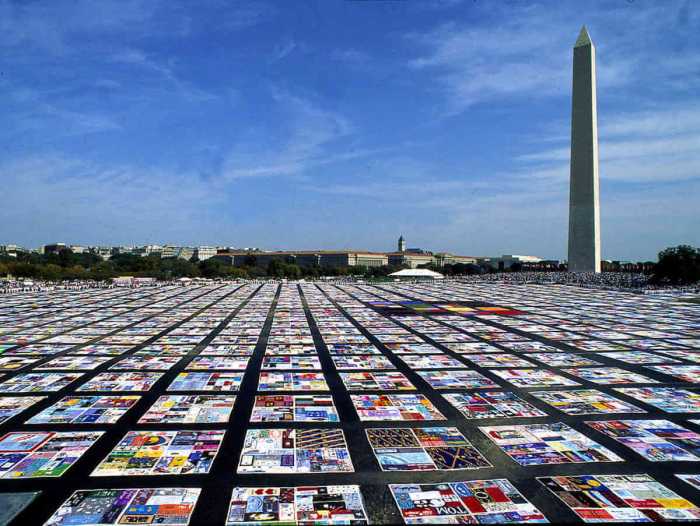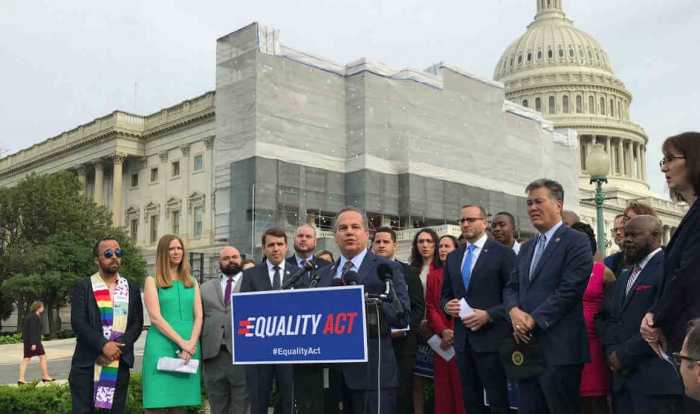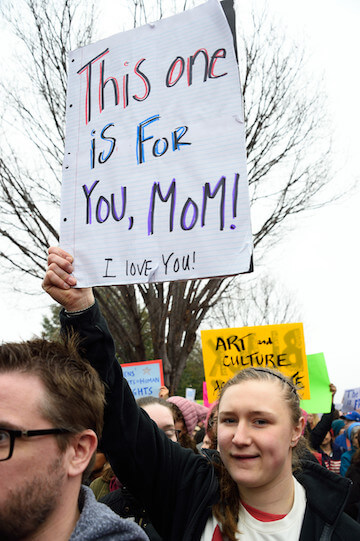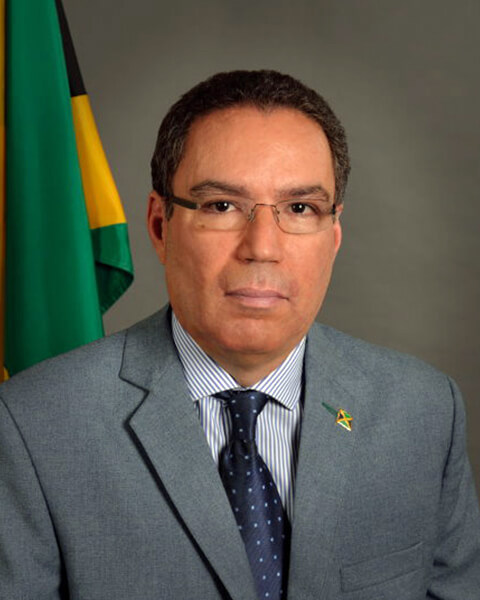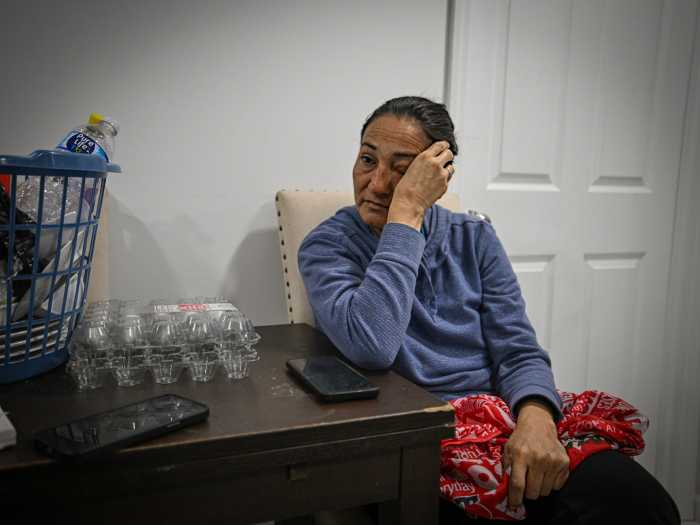PRESIDENT BARACK OBAMA'S SPEECH AT SELMA'S EDMUND PETTUS BRIDGE |
In a remarkable 32-minute speech in Selma, Alabama, the scene of bloody conflicts 50 years ago on the road to establishing the right of African Americans to vote, President Barack Obama paid tribute to the Civil Rights heroes of that era while tying their efforts to the broader push for dignity for black Americans over the past 150 years –– and also to the nation's expanding frontiers of equality across the board. The March 7 speech was a direct rejoinder to critics who have charged that the president is unappreciative of American “exceptionalism.”
Following remarks by Georgia Congressmember John Lewis, who as a 25-year-old was a leader in the Selma effort, Obama said, “It is a rare honor in this life to follow one of your heroes. And John Lewis is one of my heroes.”
In placing the struggles of Lewis and others into the broader context of American history, the president said, “There are places and moments in America where this nation’s destiny has been decided. Many are sites of war –– Concord and Lexington, Appomattox and Gettysburg. Others are sites that symbolize the daring of America’s character –– Independence Hall and Seneca Falls, Kitty Hawk and Cape Canaveral.
“Selma is such a place.
“In one afternoon 50 years ago, so much of our turbulent history –– the stain of slavery and anguish of civil war; the yoke of segregation and tyranny of Jim Crow; the death of four little girls in Birmingham, and the dream of a Baptist preacher –– met on this bridge.
“It was not a clash of armies, but a clash of wills; a contest to determine the meaning of America.”
Obama then insisted, “We cannot examine this moment in isolation. The march on Selma was part of a broader campaign that spanned generations; the leaders that day part of a long line of heroes.”
The president emphasized how unlikely the victory of the Civil Rights activists was, saying, “What they did here will reverberate through the ages. Not because the change they won was preordained; not because their victory was complete; but because they proved that nonviolent change is possible; that love and hope can conquer hate.
“As we commemorate their achievement, we are well-served to remember that at the time of the marches, many in power condemned rather than praised them. Back then, they were called Communists, half-breeds, outside agitators, sexual and moral degenerates, and worse –– everything but the name their parents gave them. Their faith was questioned. Their lives were threatened. Their patriotism was challenged.
“And yet, what could be more American than what happened in this place?
“What could more profoundly vindicate the idea of America than plain and humble people –– the unsung, the downtrodden, the dreamers not of high station, not born to wealth or privilege, not of one religious tradition but many –– coming together to shape their country’s course?
“What greater expression of faith in the American experiment than this; what greater form of patriotism is there; than the belief that America is not yet finished, that we are strong enough to be self-critical, that each successive generation can look upon our imperfections and decide that it is in our power to remake this nation to more closely align with our highest ideals?
“That’s why Selma is not some outlier in the American experience.”
Later in his remarks, Obama specifically linked the progress in Selma and throughout the South to other advances in American society, saying, “Because of what they did, the doors of opportunity swung open not just for African-Americans, but for every American. Women marched through those doors. Latinos marched through those doors. Asian-Americans, gay Americans, and Americans with disabilities came through those doors. Their endeavors gave the entire South the chance to rise again, not by reasserting the past, but by transcending the past.
“What a glorious thing, Dr. King might say.
“What a solemn debt we owe.”
President Barack Obama, with Michelle Obama, Congress member John Lewis, and (in wheelchair) Amelia Boynton Robinson, a 103-year-old activist who was knocked unconscious by a state trooper in the 1965 march. | PETE SOUZA/ THE WHITE HOUSE
The president then wove a verbal tapestry of Americans who had expanded the nation's horizons over the past 200 years, saying, “We are Lewis and Clark and Sacajawea –– pioneers who braved the unfamiliar, followed by a stampede of farmers and miners, entrepreneurs and hucksters. That’s our spirit.
“We are Sojourner Truth and Fannie Lou Hamer, women who could do as much as any man and then some; and we’re Susan B. Anthony, who shook the system until the law reflected that truth. That’s our character.
“We’re the immigrants who stowed away on ships to reach these shores, the huddled masses yearning to breathe free –– Holocaust survivors, Soviet defectors, the Lost Boys of Sudan. We are the hopeful strivers who cross the Rio Grande because they want their kids to know a better life. That’s how we came to be.
“We’re the slaves who built the White House and the economy of the South. We’re the ranch hands and cowboys who opened the West, and countless laborers who laid rail, and raised skyscrapers, and organized for workers’ rights.
“We’re the fresh-faced GIs who fought to liberate a continent, and we’re the Tuskeegee Airmen, Navajo code-talkers, and Japanese-Americans who fought for this country even as their own liberty had been denied. We’re the firefighters who rushed into those buildings on 9/11, and the volunteers who signed up to fight in Afghanistan and Iraq.
“We are the gay Americans whose blood ran on the streets of San Francisco and New York, just as blood ran down this bridge.
“We are storytellers, writers, poets, and artists who abhor unfairness, and despise hypocrisy, and give voice to the voiceless, and tell truths that need to be told.
“We are the inventors of gospel and jazz and the blues, bluegrass and country, hip-hop and rock and roll, our very own sounds with all the sweet sorrow and reckless joy of freedom.
“We are Jackie Robinson, enduring scorn and spiked cleats and pitches coming straight to his head, and stealing home in the World Series anyway.”
The president, however, took note that the progress achieved 50 years ago opening up the right to vote faces challenges today in state after state as well as in Washington, DC.
“Right now, in 2015, 50 years after Selma, there are laws across this country designed to make it harder for people to vote,” Obama said. “As we speak, more of such laws are being proposed. Meanwhile, the Voting Rights Act, the culmination of so much blood, so much sweat and tears, the product of so much sacrifice in the face of wanton violence, the Voting Rights Act stands weakened, its future subject to political rancor.
“How can that be? The Voting Rights Act was one of the crowning achievements of our democracy, the result of Republican and Democratic efforts. President Reagan signed its renewal when he was in office. President George W. Bush signed its renewal when he was in office. One hundred members of Congress have come here today to honor people who were willing to die for the right to protect it. If we want to honor this day, let that hundred go back to Washington and gather 400 more, and together, pledge to make it their mission to restore that law this year. That’s how we honor those on this bridge.”
And while arguing that the work is not yet over, Obama rejected the idea that nothing has changed in American society, saying, “We do a disservice to the cause of justice by intimating that bias and discrimination are immutable, or that racial division is inherent to America. If you think nothing’s changed in the past 50 years, ask somebody who lived through the Selma or Chicago or LA of the '50s. Ask the female CEO who once might have been assigned to the secretarial pool if nothing’s changed. Ask your gay friend if it’s easier to be out and proud in America now than it was 30 years ago. To deny this progress –– our progress –– would be to rob us of our own agency; our responsibility to do what we can to make America better.”

